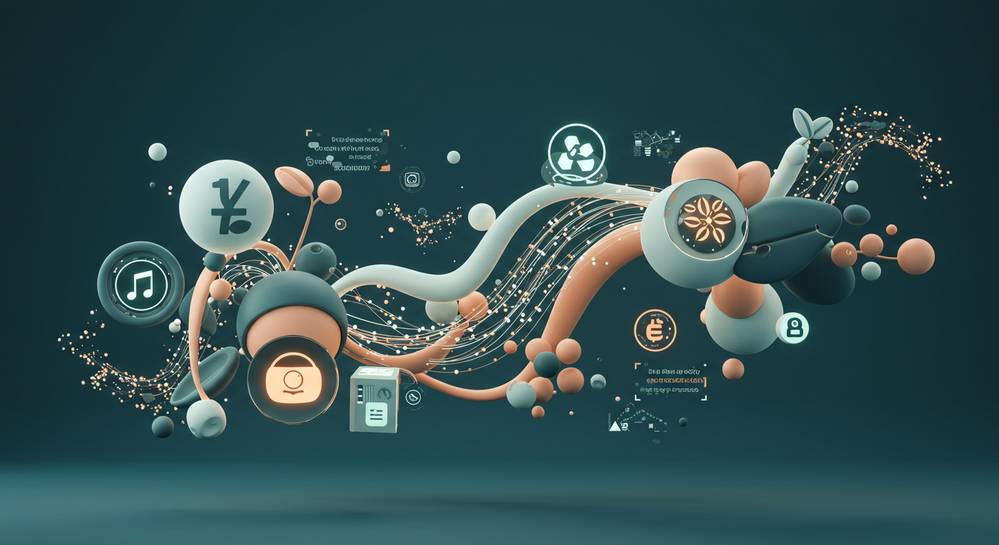The home appliance industry stands on the precipice of significant transformation. As technology advances and consumer expectations evolve, manufacturers are racing to introduce solutions that are smarter, more sustainable, and seamlessly integrated into daily life. Understanding the key appliance industry trends 2025 is crucial for consumers and businesses alike to navigate this dynamic landscape and prepare for the next generation of home innovation.
The Rise of Smart and Connected Appliances

The appliance industry trends 2025 clearly point towards pervasive smart connectivity. The Internet of Things (IoT) is fundamentally reshaping home living. By 2025, smart appliances will be standard, offering unparalleled convenience and control. These devices will seamlessly integrate into smart home ecosystems, creating a truly unified and convenient living experience.
Key Innovations in Smart Appliances
- AI-Powered Automation: Artificial Intelligence will elevate appliance functionality beyond simple automation. AI algorithms will learn user habits, optimizing performance and anticipating needs. Imagine a refrigerator suggesting recipes based on its contents or a washing machine automatically ordering detergent. This proactive intelligence enhances daily life significantly.
- Voice Control Integration: Voice control is rapidly becoming a cornerstone of modern appliance interaction. Seamless voice command functionality will be ubiquitous by 2025. Users can manage their appliances effortlessly without lifting a finger. Integrating with platforms like Google Home and Amazon Alexa creates a truly unified experience. This hands-free operation simplifies complex tasks, making homes more intuitive.
Sustainability and Energy Efficiency at the Forefront

Environmental concerns are profoundly shaping the appliance industry trends 2025. Sustainability and energy efficiency are no longer optional features but essential requirements. Manufacturers are now deeply focused on minimizing the environmental footprint of their products across their entire lifecycle, from initial production to eventual disposal. This commitment drives significant innovation.
Driving Sustainability in Appliances
- Eco-Friendly Materials: A major trend involves the increased adoption of recycled, recyclable, and sustainably sourced materials in appliance construction. This reduces reliance on virgin resources and minimizes waste.
- Advanced Energy Saving Technologies: Innovations in motor design, insulation, and sensor technology lead to exceptionally energy-efficient models. These appliances often surpass current Energy Star ratings, adapting consumption based on real-time usage and utility rates.
- Water Conservation: Modern dishwashers and washing machines feature sophisticated water-saving cycles. They use significantly less water while maintaining optimal cleaning performance. This addresses growing global concerns about water scarcity.
Personalization and Enhanced User Experience
Beyond basic smart features, a significant shift in undefined focuses on personalization. Appliances are evolving from one-size-fits-all solutions to systems that adapt to individual preferences and lifestyles. This innovation aims to make daily chores less burdensome and more intuitive for every household member. The future promises tailor-made functionalities and predictive insights.
Tailored Home Experiences
- Customizable Settings: Users will gain unprecedented control over appliance settings. This allows for highly personalized cycles in laundry, precise cooking modes, and adaptable cooling zones in refrigerators. Such flexibility ensures optimal results for diverse needs.
- Predictive Maintenance: Appliances will autonomously monitor their own health. They will provide proactive alerts for potential issues and even schedule service appointments. This minimizes downtime, extends product lifespan, and offers peace of mind.
- Health and Wellness Integration: Expect more appliances to support health goals directly. This includes smart scales integrated with refrigerators for nutritional tracking, or advanced air purifiers with allergen detection. These features contribute to a holistic well-being ecosystem within the home.
Supply Chain Resilience and E-commerce Evolution

Recent global challenges have underscored the critical importance of robust supply chains. In 2025, the undefined will prioritize resilience, diversification, and localized manufacturing. This ensures consistent product availability for consumers. Simultaneously, the e-commerce landscape for appliances continues its rapid evolution, offering more sophisticated purchasing and delivery experiences. These shifts are fundamental to meeting modern consumer expectations.
Evolving Supply Chains and Online Retail
- Diversified Manufacturing: Companies are strategically investing in multiple production hubs across various regions. This mitigates risks associated with geographical disruptions and political instability. It ensures a more stable flow of goods.
- Enhanced Logistics: Significant improvements in last-mile delivery and professional installation services for large appliances are becoming a key differentiator. This elevates the online retail experience, addressing a common pain point for consumers.
- Direct-to-Consumer Models: More manufacturers are actively exploring direct sales channels. This offers consumers greater access to exclusive products, personalized support, and a more direct brand relationship. It streamlines the purchasing journey.
In conclusion, the appliance industry is undergoing a profound evolution driven by technological advancements, environmental consciousness, and a deep understanding of consumer needs. The journey towards smarter, more sustainable, and personalized homes is well underway, promising a future where appliances are not just tools but intelligent partners in daily living. Staying informed about these shifts will empower consumers to make the best choices for their homes. For more insights and the latest innovations, visit Efficient Home Goods.